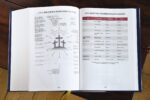Everything You Need to Know About Job

Reading Job
The book of Job begins and ends with a narrative section on what happened to Job, and it includes conversations between God and Satan about Job. Most of the book, however, is a series of speeches of Job and four of his friends, attempting to come to grips with Job’s suffering. If we wish to discover God’s message for us in this book, we must be careful with these conversations, for much of what is said does not reflect God’s own perspective as seen elsewhere in the Bible.
This book fits in the literary genre of wisdom literature, not historical narrative. Therefore, we must not take all the accounts in this book, such as the exchanges between God and Satan in the first part of the book, as literal fact; rather, we must examine each element in the book in relationship to the whole book and to the whole Bible.
The Perspective of Job
There is good reason why Christian theologians consider theodicy—the defense of God’s goodness in the face of the reality of evil and suffering in the world—the unsolvable theological issue. The reason is this: It is unsolvable. Yet this does not stop generation after generation of theological scholars from trying to solve it. And the biblical text they most often reference in this task is the book of Job.
To ask why God blesses, or doesn’t bless, the righteous, or why God punishes, or doesn’t punish, the wicked is to ask the wrong question when trying to understand this classic work. God’s justice is ultimately unfathomable to us. God is just—we know that by faith—but we can’t know how God is just. Thus, the book of Job does not answer that question; rather, it answers another question. Our task in reading Job is to read it as the answer to an unspoken question and then from the answer infer the correct question.
We have all gained some comfort in knowing that others, like us, all experience undeserved suffering. Once we get the core question right, all of the other wisdom we have learned about Job remains just as meaningful to us, but with a slightly different twist and a more satisfying context—the context set by the right question.
Unlike many books of the Bible, we don’t know the author of Job or its date of composition. We do not really know whether it is based on historical events (and a historical person named Job) or whether it is a purely literary construction. This book cannot be fully understood without relating it to real life—not just the legendary Job, but our own experience or the experience of someone we know, here in the 21st century. Suffering is not, in the end, a philosophical, or even a theological problem, but a human problem. We all suffer; some more than others, but the quantity really doesn’t matter. What matters is what suffering teaches us about God. Job’s response to God’s answer to his questioning in this book (42:1–6) is perhaps the most instructive response ever uttered to the problem of suffering in the world.
Key Verse of Job
I know that my redeemer lives, and that in the end he will stand on the earth. And after my skin has been destroyed, yet in my flesh I will see God; I myself will see him with my own eyes—I, and not another. — Job 19:25–27
Take the Next Steps
Most Bible students think that Job lived about the time of Abraham, though the story was probably put down into writing much later. In this book the writer struggles with the problem of human suffering and pain: Why do bad things happen to people who live good lives? The basic
answer is the freedom of God: God knows what he is doing, and he is free to act as he sees fit. We cannot prove this by what we see happening around us, but we accept it through faith. Furthermore, by means of the story of Job, God assures us that he deals with us not according to the demands of his justice but according to his grace—grace that we experience through a mediator between us and God.
For anyone who is experiencing pain in his or her life, the book of Job is invaluable, for we learn several important lessons. (1) Pain and suffering are common to all people: good and bad, rich and poor; no categories of people are exempt. (2) Devout children of God can feel such intense pain that they will say things they would not otherwise say. (3) Whenever we suffer, we must realize that there may be spiritual realities (such as the conversation between God and Satan) beyond our awareness. But God is under no obligation to reveal these other facts to us. (4) Whenever we experience affliction, we must never forget that Satan is under the control of God; he is not free to do as he pleases. (5) God remains true to the principle that the righteous are rewarded and evil people punished, even though this may not become apparent until the end of time.
############################
Content adapted from the NIV Application Bible. Featuring thousands of study notes drawn from the bestselling NIV Application Commentary series, the NIV Application Bible helps you understand Scripture and connect it to your world in a whole new way. This study Bible guides you in discovering how the ancient truths found in Scripture relate to your experiences today using insight from trusted evangelical scholars, paired with timely biblical application principles. Throughout the Bible, Original Meaning Notes help you explore the meaning of the biblical text while Application Notes make it personal, helping you to integrate the Bible’s teachings into your everyday life.



















